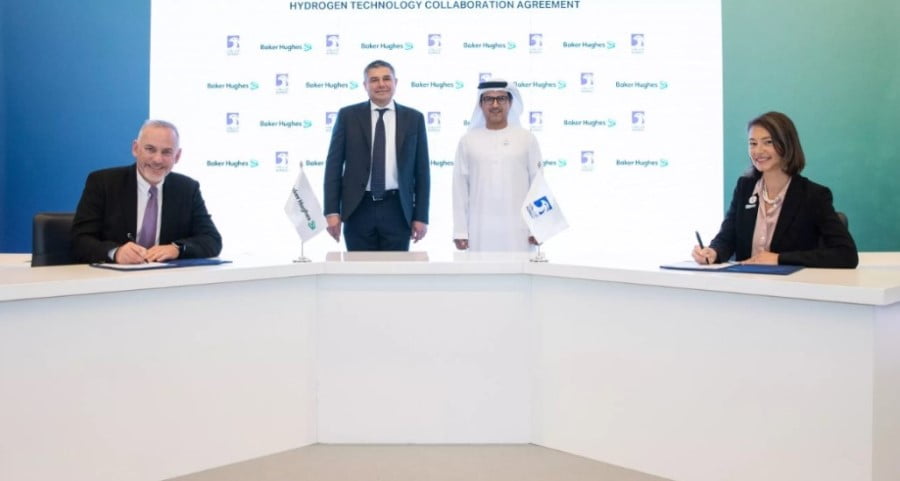ADNOC and Baker Hughes have signed an agreement to accelerate the development and commercialization of technology solutions for green and low-carbon hydrogen, as well as graphene.
The agreement, which follows a strategic technology collaboration agreement signed between the two companies in November 2022, will see ADNOC collaborate with Baker Hughes as a strategic partner to study and pilot, the deployment of innovative solutions from Baker Hughes’ hydrogen portfolio. These include new growth stage decarbonization technologies Baker Hughes has invested in across the graphene, methane pyrolysis and next-generation electrolysis spaces.
In January, ADNOC announced it would allocate $15 billion to low carbon solutions and has since signed a number of deals to advance its goals including the world’s first fully sequestered CO2 injection project. An MoU was signed with Masdar in March to cooperate on geothermal opportunities, as was an MoU with Italian energy major Eni to accelerate cooperation on energy transition projects.
Likewise, Baker Hughes has taken on a number of agreements and initiatives into the energy transition this year including a deal with Fortescue to collaborate on exploring green hydrogen and geothermal projects.
Within this new agreement, ADNOC will leverage Baker Hughes’ extensive hydrogen expertise and broad portfolio to test and develop solutions to produce low-cost green hydrogen and graphene at scale, helping to decarbonize operations. The collaboration will include exploring the application of three emerging technologies that Baker Hughes has invested in.
1) Piloting next-generation electrolyzer technology from Nemesys, to explore the possibility of installing and operating an electrolyzer at the ADNOC Research and Innovation Center (ADIRC) in Abu Dhabi, building on the center’s growing portfolio of technology development capabilities.
2) Field testing methane plasma technology from Levidian to capture carbon in the form of high-quality graphene and hydrogen in ADNOC Gas’ facilities. The graphene produced will be tested for industrial use cases by researchers at Khalifa University (RIC-2D).
3) Testing the use of Ekona Power’s growth stage methane pyrolysis technology to produce low-Green House Gases (GHG) intensity hydrogen.

